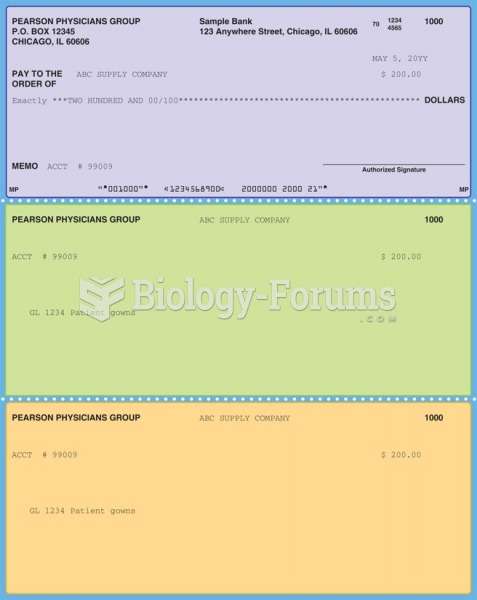This topic contains a solution. Click here to go to the answer
|
|
|
Did you know?
In the United States, there is a birth every 8 seconds, according to the U.S. Census Bureau's Population Clock.
Did you know?
The FDA recognizes 118 routes of administration.
Did you know?
More than 4.4billion prescriptions were dispensed within the United States in 2016.
Did you know?
The horizontal fraction bar was introduced by the Arabs.
Did you know?
More than one-third of adult Americans are obese. Diseases that kill the largest number of people annually, such as heart disease, cancer, diabetes, stroke, and hypertension, can be attributed to diet.







